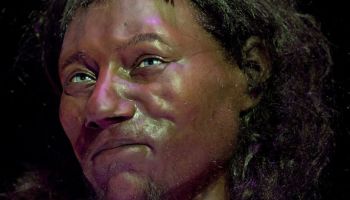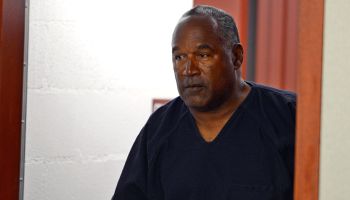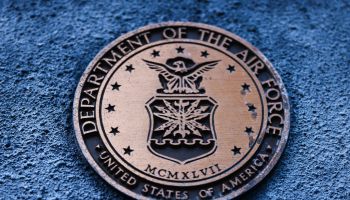WASHINGTON — Eight years after the U.S. Coast Guard and the National Association for the Advancement of Colored People signed a voluntary agreement to work together to boost the number of African-Americans at its 1,000-cadet service academy, the annual enrollment and graduation figures for blacks remain in single digits.
Seven blacks graduated from the academy based in New London, Connecticut, in the spring of 2001, the year the agreement was signed.
The same number graduated from the Class of 2006, the first class for which blacks were recruited under the agreement.
Subsequently, there were seven black graduates in 2007, five in 2008 and four in 2009.
That makes 23 graduates in four years under the agreement, including the academy’s first black female valedictorian. In the four previous years the number was 33.
RELATED: NAACP Calls Pittsburgh Schools “Apartheid Education”
Leading lawmakers have grown increasingly upset with results even as they repeatedly are told the Guard is working hard to improve diversity in a service where only 311 of its 6,787 commissioned officers are black, with only one black admiral.
“The Coast Guard has just not paid attention to it. It is not antipathy or animosity toward it,” said Rep. James Oberstar, Democratic chairman of the House of Representatives Transportation Committee. “I think we’re moving in the right direction and got the Coast Guard’s attention and we’re not going to let up.”
Under a House bill, sponsored by Oberstar and Democratic Rep. Elijah Cummings, the Coast Guard subcommittee chairman, members of Congress would nominate candidates for the academy. All the other service academies have long used congressional nominations.
On a 385-11 vote last month, the House advanced the legislation to the Senate.
The Coast Guard Academy historically has taken pride in viewing itself merit-based and choosing its applicants without regard to their geographical distribution among the states.
Cummings, a member of the Congressional Black Caucus, expects black enrollment to grow with congressional involvement, at least in part because the House typically has about 40 black lawmakers who would be effective recruiters in largely black congressional districts.
RELATED: Boarding Schools See Increase In Diversity
The Coast Guard’s position on the bill has been rather subdued.
The academy’s superintendent, Rear Adm. J. Scott Burhoe, likes the existing “merit-based system,” but would be “fine” if Congress adopted congressional nominations.
“I think for us part of our fear is the unknown, really, right now,” he said in an interview with The Associated Press.
The Coast Guard Academy graduated its first black officer in 1966. In the 43 years since, only about 2 percent of the academy’s graduates have been black and only once has there been as many as 10 in a single year.
Two years ago, the academy drew national attention when a noose was found among a black cadet’s personal effects on a Coast Guard vessel. That was followed with the appearance of a noose for a white officer who was conducting race relations training at the academy.
Cummings said at the time that the Coast Guard must redouble its efforts in the face of a clear attempt to threaten and intimidate efforts to increase diversity.
An investigation involving 50 federal agents including the FBI produced no arrests or motives.
At present, the academy reports it has 136 minorities, with 72 Hispanics, 39 Asians and 25 African-Americans.
The Coast Guard, when asked by The Associated Press how many African-Americans were admitted to its academy as a result of the NAACP memorandum of agreement, said, through spokeswoman Nadine Santiago, that there was no way to know.
Lawmakers lashed out at the Coast Guard at a hearing last June for admitting so few blacks for the 2013 class only months after a previous hearing and discussion about the need to provide for congressional nominations.
Hilary Shelton, the NAACP’s senior vice president for advocacy and policy, said the Coast Guard asked to enter into their nonbinding memorandum of agreement in 2001 after the Coast Guard recognized its record in recruiting blacks was dismal. Eight years later, he acknowledged that the current black enrollment figures are “sad and unfortunate.”
He was unsure about the use of congressional nominations as a solution. He said adding another step in the selection process could be “stifling” for recruitment.
“I am convinced that we probably need to do a thorough assessment of what we’ve done thus far and find ways of actually making it more robust,” he added. “You need to work with community-based organizations like the NAACP to make sure that this great opportunity is there for them and indeed they can be successful.”
















